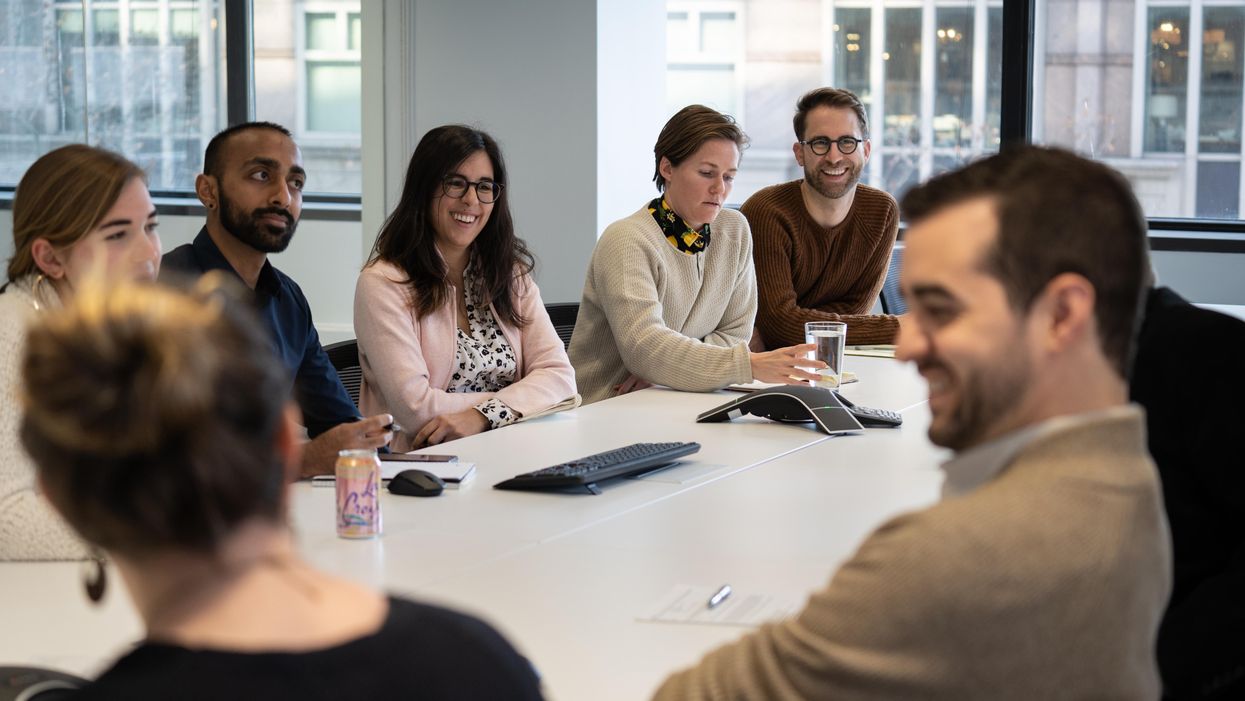This is the second installment of an ongoing Q&A series.
As Democrats take power in Washington, if only tenuously, many democracy reform groups see a potential path toward making the American political system work better. In this installment, Corey Goldstone, communications manager for the Campaign Legal Center, answers our questions about 2020 accomplishments and plans for the year ahead. His organization works to achieve voting, campaign finance and redistricting reforms through litigation. Goldstone's responses have been edited for clarity and length.
First, let's briefly recap 2020. What was your biggest triumph last year?
The Campaign Legal Center successfully advocated for nonpartisan voting reforms to encourage broader participation and a more inclusive democracy. As a result, America turned out to vote in record numbers in 2020. Braving the dual challenges of a viral pandemic and civil unrest, hardworking election officials stood shoulder to shoulder to finish the vote count and certify the results, despite intense pressure from Donald Trump to circumvent election procedures.
Major legal victories in our voting rights litigation paved the way for safe and secure access to absentee voting and a higher degree of confidence that states would not reject ballots for arbitrary reasons like handwriting in voter signatures.
CLC also played a leading role — along with our partners in the National Task Force on Election Crises — in educating lawmakers, the media and the public about the limited role of state legislatures and the vice president in the vote certification process.
And your biggest setback?
Trump was an existential threat to democracy in 2020. He used his megaphone in 2020 to convince many of his supporters that the election was stolen, despite all evidence to the contrary. In the final weeks before the election, only 37 percent of Americans expressed confidence that the election would be held fairly. Countering cynicism and conspiracy theories with facts has become increasingly challenging.
While it's a relief that a violent attempt to prevent the counting of the Electoral College votes in our presidential election failed, the fact it was encouraged by the president and attempted by the crowds he summoned to Washington reflects a deeper decay in public confidence in our democracy.
What is one learning experience you took from 2020?
We have a resilient system of safeguards in place in which ballots are validated and counted. Our elections are highly decentralized and election administrators are qualified officials who take their jobs seriously. We have a duty as Americans to accept the results of elections, even if the candidate we supported does not win. Many officials in key positions resisted pressure from Trump and recognized their obligation to the country.
Now let's look ahead. What issues will your organization prioritize in 2021?
We need to advance voting rights, strengthen ethics laws, curtail partisan gerrymandering and decrease the influence of wealthy special interests in our political system. These are reforms that an overwhelming majority of Americans — across the political spectrum — view as popular.
The vote certification process was abused by bad-faith partisans to the point where the country narrowly avoided a constitutional crisis. The Electoral Count Act should be substantially revised to provide constraints on the permissible grounds for objecting to a state's appointment of presidential electors or the votes cast by those electors.
How will Democratic control of the federal government change the ways you work toward your goals?
If passed, HR 1 would enact one of the most comprehensive improvements our democracy has seen in decades.
What do you think will be your biggest challenge moving forward? And how do you plan to tackle it?
The splintering of American media consumption makes it challenging to educate the public about election mechanics to foster trust in the process. We need to make sure we are talking to voters that distrust mainstream media.
Finish the sentence. In two years, American democracy will ...
be more transparent, inclusive and accountable to the people.




















